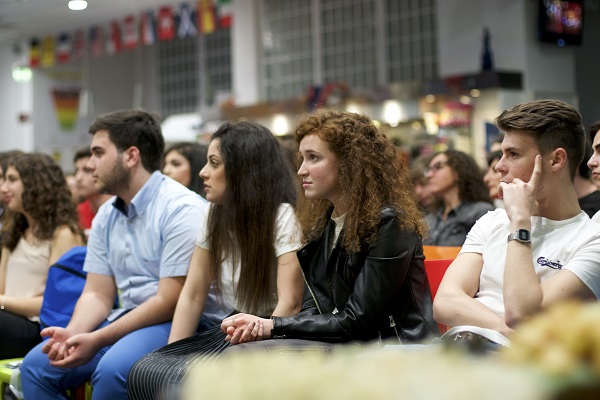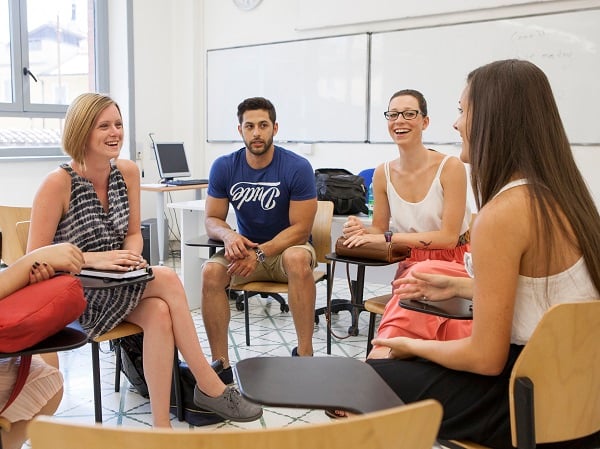

At the end of the 18th century A. L. C. Destutt de Tracy coined the word idèologie, and other philosophers soon borrowed the term into English as ideology. De Tracy defined the word as “the science of ideas.” However, idèologie began to connote impracticality a few decades after its coinage because of Napoleon’s contemptuous usage. What does this have to do with political and social science classes?
The short answer involves the way the word ideology is used today. It typically means “a systematic body of concepts” and is often associated with political parties or groups. Many topics within the study of communications, international affairs, political science, and psychological science require consideration of how ideologies are shaped and how this relates to social and psychological issues. Keep reading to learn how these topics will play out in this sample of course offerings at John Cabot University.
1. “Comparative Politics”
If you want to study abroad in Italy, you might be interested in learning about different political systems. Comparative politics refers to both a subject and a method. When you compare and contrast different systems of government, policy making, election procedures, and more, you will sharpen your critical analysis skills and be more prepared for a future career in a variety of different fields.
 JCU's small class sizes allow for group discussions and engaging conversations with your classmates and professors
JCU's small class sizes allow for group discussions and engaging conversations with your classmates and professors
Whether you eventually decide to work at an international, national, or local level, the knowledge you gain from exposure to the politics of the U.K., France, Germany, Russia, and China will give you a sensitivity to difference, which is an essential characteristic for anyone interested in social or political science, or communications.
2. “The Sociology of Southern Italy”
Southern Italy provides a fascinating framework to discover and reckon with the country’s history, especially as you attend university in Italy. From the unification of Italy to contemporary times, students in this course will learn about where perceptions and characterizations of the South come from, what that means for ordinary southern Italians today, and much more. This course topic is just one example of how, when you work towards an in-depth understanding of the social history of a region, you will gain insights and develop transferable research skills.
3. "The Theory and Practice of Diplomacy"
In today’s global context, how diplomacy works is a significant question. In this course, students have the opportunity to consider this question along with the realist and idealist theories driving it under the guidance of Professor Alberto Schepisi, who has first hand-experiences from his diplomatic career in the Italian Foreign Service.
What is the agenda of diplomacy and diplomats? How is diplomacy changing? These questions are especially important for students interested in international relations, but the topics will extend to consider environmental and climate change, terrorism, nuclear safety, mass migrations, and other urgent matters. As you put together your schedule for the semester, you can get excited to take your studies to an international level with courses like these.
Looking for an opportunity to study in Italy?
Visit John Cabot University today!




